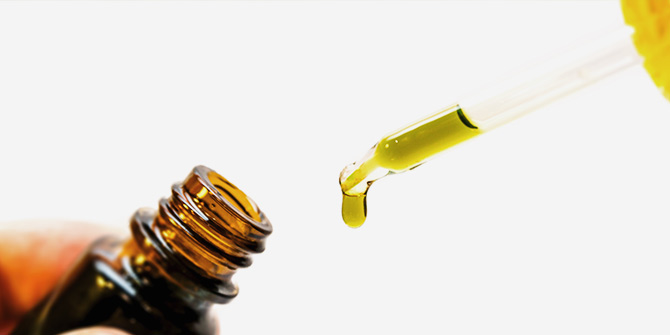10 Ways CBD Oil May Influence The Human Body
What CBD is, how it works, and how it could impact you.

Contents:
- What does cbd stand for?
- How does cbd oil work?
- Ways cbd oil may influence the human body
- What does cbd oil do to your brain?
- Does cbd oil get you high?
- How does cbd oil make you feel?
- What side effects can cbd oil have?
- Does cbd oil cause paranoia?
- Does cbd oil cause drug-drug interactions?
- Can you have an allergic reaction to cbd oil?
- Which cbd oil is best for you?
Interested in finding out the benefits of CBD oil? Keep reading to familiarise yourself with CBD and how it works with the body. Backed by preliminary scientific research, CBD demonstrates versatile potential.
WHAT DOES CBD STAND FOR?
CBD oil is a natural product derived from hemp, a selectively bred type of Cannabis sativa. The abbreviation “CBD” stands for cannabidiol, one of the dozens of organic compounds found within hemp.
Once isolated from raw plant material, CBD is added to a carrier oil (typically olive or hemp seed oil) and sold as CBD oil. These oils appear in concentrations ranging from as little as 2.5% CBD all the way up to 30%.
The ideal concentration of CBD oil depends chiefly on an individual's circumstances and their reason for taking CBD oil. Despite the many variables involved, it hasn’t stopped interest in CBD oil from reaching an all-time high.
HOW DOES CBD OIL WORK?
What makes CBD oil unique is that, when consumed, it interacts with the human body via the endocannabinoid system (ECS).
The ECS is a regulatory network that exists inside all mammals. In humans, the ECS is partly responsible for maintaining homeostasis—a state of biological balance. Interestingly, CBD oil is thought to encourage[1] this balanced state, boosting the effectiveness of the ECS as a regulatory system.
WHAT OTHER CBD PRODUCTS ARE THERE?
It isn’t just CBD oil that exists. Due to its versatile nature, CBD is easily incorporated into dozens of product ranges, including:
- CBD capsules
- CBD cosmetics
- CBD medical creams
- Liposomal CBD oil
Again, the right CBD product for you will depend on individual circumstances. However, for the majority of people, CBD oil is the most popular choice. It's easy to consume, discreet, and a few drops could be enough to experience its effects.
10 WAYS CBD OIL MAY INFLUENCE THE HUMAN BODY
Below you’ll find a summary of how it may influence critical human conditions.
1. CBD OIL AND PAIN
Pain is a vast and complicated mechanism. Not only are there different types of pain, but the sensation is subjective—we all feel pain differently.
In 2018, Frontiers in Pharmacology[2] published a review outlining the impact cannabinoids (including CBD) had on pain. The study examined the following types of pain:
- Inflammatory pain
- Cancer pain
- Neuropathic pain
- Rheumatic pain
- Chronic abdominal pain
By examining a cross-section of preclinical and animal model studies, researchers identified several trends:
- The mechanisms of cannabinoids include inhibition of neurotransmitters and nerve endings, and neural signalling
- Cannabinoids exhibit varied activity, especially in regard to pain
The review concludes that there is a “moderate amount of evidence”, but that “larger well-designed studies” are needed to help determine the appropriate dose, frequency, and combination of cannabinoids.
It also, however, highlights that “larger well-designed studies” are needed to help determine the appropriate dose, frequency, and combination of cannabinoids.
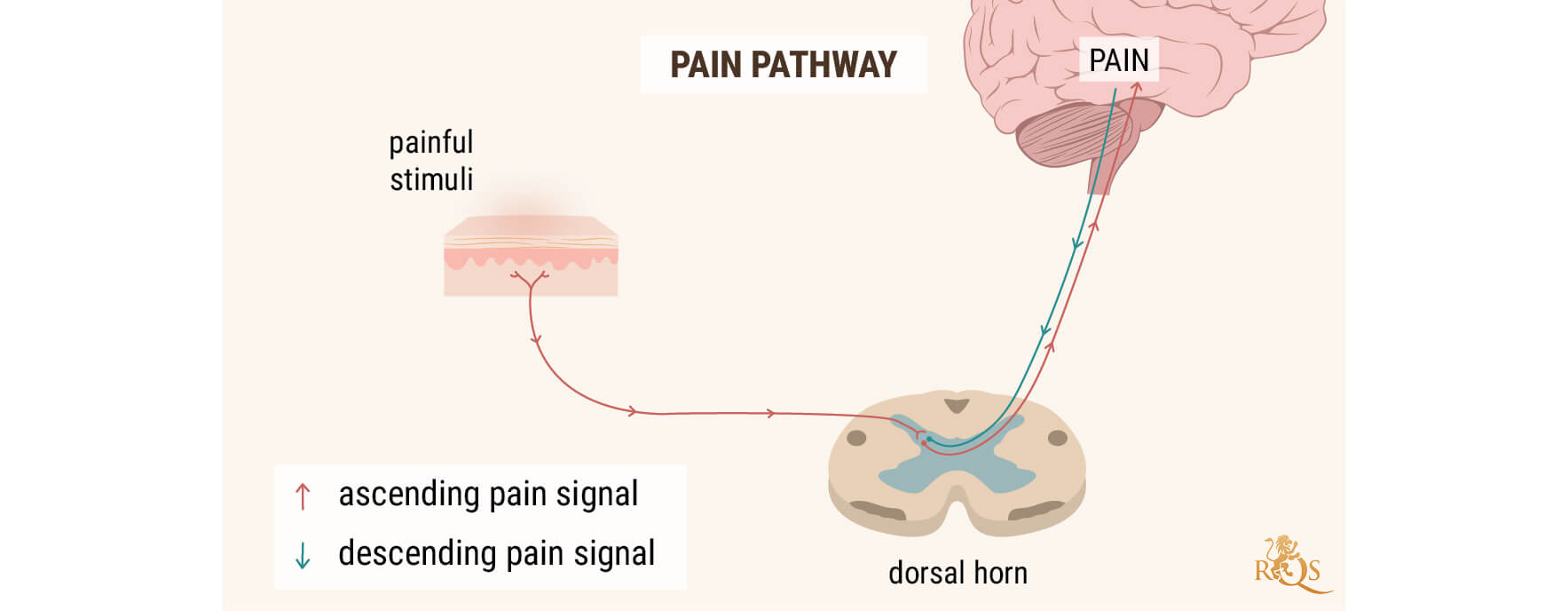
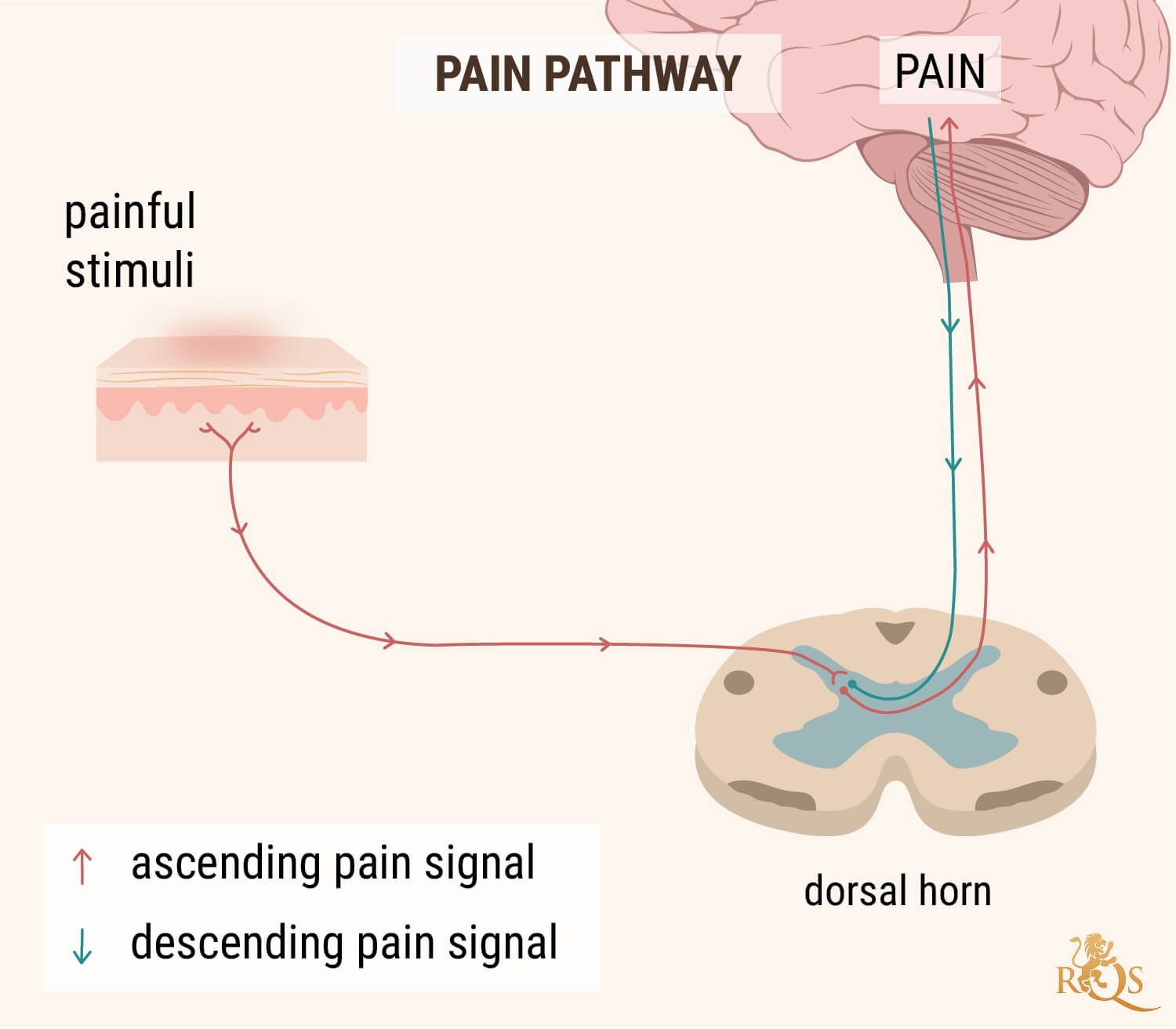
2. CBD OIL AND ANXIETY
Anxiety affects us all at some point in our lives. But for the millions of people worldwide living with an anxiety disorder, symptoms are often debilitating.
The Journal of the American Society[3] for Experimental Neurotherapeutics published a study in 2015 that examined the effect of cannabidiol on anxiety disorders, including:
- Generalised anxiety disorder
- Seasonal affective disorder
- Parkinson’s disease
- Obsessive-compulsive disorder
- Post-traumatic stress disorder
Interestingly, the study highlighted that CBD's impact appears to depend on CB1 and 5-HT1A receptor interaction. The former is linked to the endocannabinoid system, while the latter is part of the serotonin system.
The review found that:
- Evidence is growing, but limited in clinical populations
- Further study is needed to determine therapeutic efficacy
Again, however, it seems that the impact of CBD could be dose-dependent. So far, only acute doses have been studied.
3. CBD OIL AND SLEEP
Sleep is an essential function that helps our body repair and recuperate, and something we could all do with a little more of. In fact, data[4] suggests that 35% of adults get less than seven hours of sleep per night.
Our lack of restful sleep is influenced by factors such as:
- Stress/anxiety
- Blue light exposure (from electronic devices)
- Irregular working hours
CBD oil can’t help with the disruption of irregular working hours, but studies are exploring the compound’s potential impact on psychological factors such as stress, worry, and anxiety.
The Permanente Journal[5] published a study involving 103 adult patients, finding that:
- There was a change in 79.2% of participants after taking 25mg of CBD
- 66.7% of participants experienced effects in the month following
Further controlled clinical studies are needed, but CBD “does not appear to alter consciousness or trigger a high”, making it the subject of great interest for researchers.

4. CBD OIL AND SKIN
The skin is our body’s greatest defence against infection, bacteria, damage from UV rays, and pollution. However, even the skin’s protective qualities need support.
The University of California[6] published a scoping review on the role of cannabinoids in dermatology. After analysing the results of post-2007 studies, they concluded that cannabinoids have the potential to treat skin conditions such as:
- Acne vulgaris
- Atopic dermatitis
- Psoriasis
- Skin cancer
The researchers were quick to highlight the requirement for further preclinical studies and large-scale, randomised, controlled clinical trials. Moreover, CBD appears to operate through multiple mechanisms of action, each of which requires thorough investigation.
5. CBD OIL AND NAUSEA
Nausea can manifest in several forms, via a range of conditions. Common causes of nausea include:
- Motion sickness
- Morning sickness
- Flu
- Chemotherapy
One significant area of CBD research involves anticipatory nausea, a side effect of chemotherapy.
An animal model study[7] supported by the Canadian Institute for Health Research identified a mechanism of action that influenced acute and anticipatory nausea.
They found that inhibition of FAAH, an enzyme that breaks down endocannabinoids, could impact nausea. Fortunately, CBD has been found[8] to block the production of FAAH, contributing to higher levels of endocannabinoids.
However, it may be that a combination of cannabinoids offers the most promise. The cannabinoids listed below are all being explored for their potential impact on nausea:
- THC
- CBD
- CBDA
- CBG

6. CBD OIL AND SEX
While there is a lack of evidence showing a direct impact on sex, CBD oil’s influence over our sex lives may stem from its effects on:
- Anxiety
- Stress
- Chronic pain
As we’ve seen from the evidence outlined above, the compound may influence all three factors and therefore have an impact on the quality of sex. There’s also the versatility of CBD to consider. The cannabinoid features in several products aimed at improving a person’s sex life, including:
- Lubricants
- Oils
- Edibles
There is still much to learn about the extent of CBD’s effect on libido and fertility, but early indications[9] suggest the endocannabinoid system plays a crucial role in sexual reproduction.
7. CBD OIL AS AN ANTIOXIDANT
Before we can understand CBD’s role as an antioxidant, it helps to outline the metabolic process. Whenever our body creates energy, it also produces a class of waste products known as free radicals. The appearance of some free radicals is natural, but too many can lead to severe conditions.
Other factors that influence the production of free radicals include:
- Air pollution
- UV light
- Chronic inflammation
- Smoking
- Radiation
To combat the damage caused by free radicals, our body produces antioxidants, natural substances that inhibit oxidation. However, when the level of free radicals gets too high, we can use external sources to help.
The Laboratory of Cellular and Molecular Regulation[10] found that cannabidiol and other cannabinoids may act as neuroprotectants. The study's results indicate that:
- Cannabidiol appeared to exert an effect on neural toxicity
- Researchers are still exploring CBD’s capacity compared to other antioxidant compounds (vitamin E, vitamin C)
It's essential, however, to emphasise that these results were part of an animal study, and human trials are still underway.
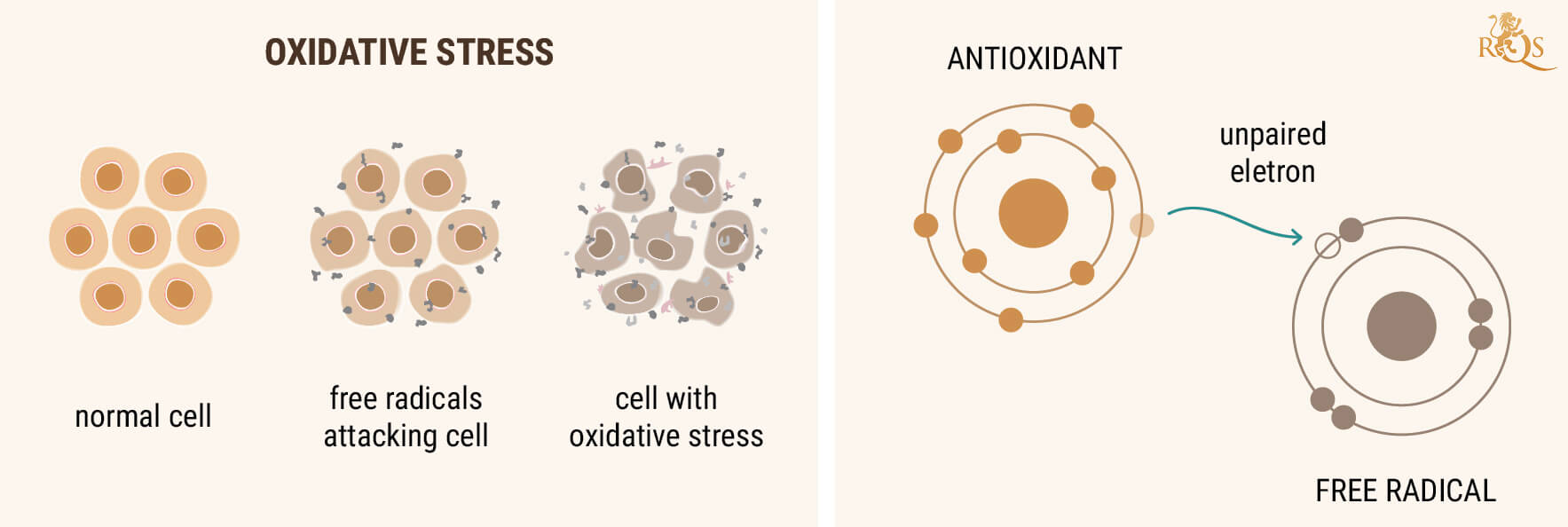
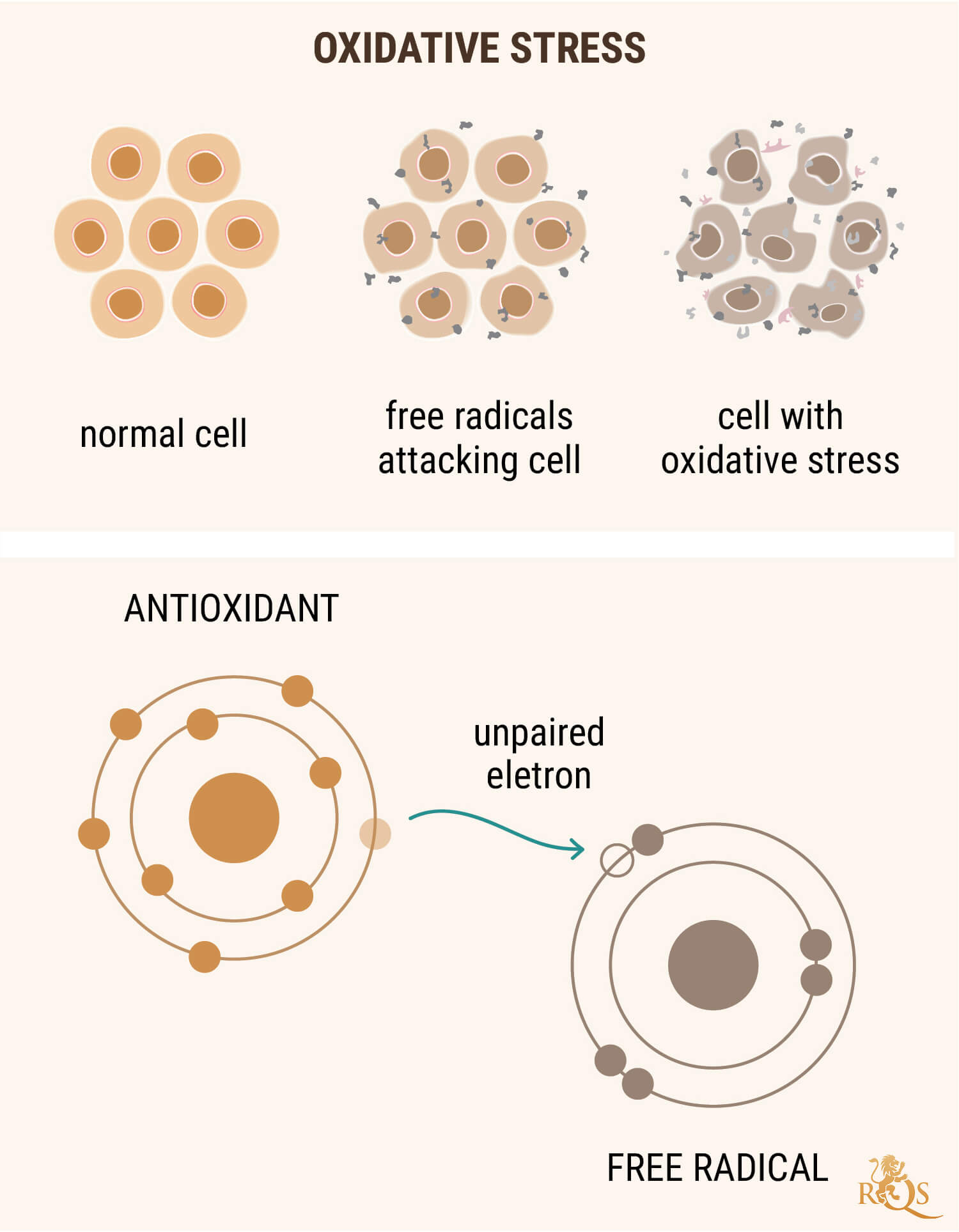
8. CBD OIL AND CARDIOVASCULAR DISEASES
Also known as CVD, cardiovascular disease is a general term used to describe conditions affecting the heart or blood vessels. Common causes of CVD include:
- High blood pressure
- Smoking
- High cholesterol
- Diabetes
- Lack of exercise
- Being overweight
It’s CBD’s possible antioxidant and anti-inflammatory attributes that may support the treatment of cardiovascular conditions such as strokes, angina, or heart attacks.
In 2017, the Journal of Clinical Investigation found that CBD[11] influenced blood pressure in healthy volunteers compared to a placebo. High blood pressure (hypertension) is a significant risk factor for CVD.
In the same year, Pharmaceuticals (Basel) highlighted that CBD[12] offers new possibilities through its potential effect on cerebral blood flow.
You can read more about the possible impact of CBD on cardiovascular health here. But, with the number of people affected by CVD rising, researchers are eager to understand how CBD could help.
9. CBD OIL AND SEIZURES
One area where a synthetic version of CBD has shown significant promise is epilepsy. However, it’s only applicable to specific conditions—at least for the moment.
In 2018, the American Food and Drug Administration (FDA)[13] approved the use of Epidiolex for two types of severe epilepsy occurring in children. Epidiolex is a synthetic version of CBD used to treat:
- Lennox–Gastaut syndrome
- Dravet syndrome
The Journal of Epilepsy Research[14] also conducted an in-depth review on how CBD and other cannabinoids are changing the way we treat epilepsy. Their analysis concluded the following:
- “There is now class 1 evidence that adjunctive use of synthetic CBD improves seizure control in patients with specific epilepsy syndromes”
- “The era of evidence-based prescription of a cannabis product is within our sight”
Yet, while the researchers acknowledge that they’re very close to conclusive evidence, several variables (drug–drug interactions/dosage) need to be examined in greater depth.

10. CBD OIL AND ADDICTION
Addiction is a complex physical and emotional condition that manifests in a variety of ways. While some addictions are mild, others significantly impact a person’s quality of life.
Common addictions include:
- Smoking
- Alcohol
- Drugs
- Gambling
Fortunately, researchers[15] have explored the impact of CBD on addiction in a small sample of smokers. Compared to a placebo, 40% of participants favoured a CBD inhaler. You can read more details about the study here.
Similar results were found regarding alcoholism. Pharmacology Biochemistry and Behavior published a study[16] that showed an interaction between CBD gel and alcohol-induced neurodegeneration in rodents. CBD’s potential effect on other addictions remains under examination.
CBD’s potential effect on other addictions remains under examination. Moreover, researchers believe the cannabinoid may help limit the impact of withdrawal symptoms for a range of conditions.
WHAT DOES CBD OIL DO TO YOUR BRAIN?
While we still don’t know the full extent of CBD oil's impact on the brain, several studies[17] have identified possible mechanisms. This is not an exhaustive list, but it outlines some of the ways CBD oil could impact key neurological processes:
- Modulates drug reward-inducing effects
- Dysregulates CB1 receptors in some regions of the brain
- Influences damage associated with neurodegeneration
- Shows a modest affinity for 5-HT1A receptors, mimicking the effects of serotonin
Evidence[18] suggests that “cannabidiol may have interesting and useful potential beyond the realm of cannabinoid receptors”.
DOES CBD OIL GET YOU HIGH?
Although we’ve discussed the potential effects of CBD, a high is not one of them. THC causes users to get high because of the way it influences CB1 receptors in the brain. CBD, on the other hand, takes a more indirect approach as a support for the entire endocannabinoid system—boosting enzyme and endocannabinoid production.

HOW DOES CBD OIL MAKE YOU FEEL?
Canadian researchers[19] have suggested that CBD could minimise the psychotropic effects of THC, rather than enhance them. Moreover, evidence from a 2018 review[20] of CBD by the World Health Organisation (WHO) found that:
- “CBD exhibits no effects indicative of any abuse or dependence”.
- “CBD is generally well-tolerated with a good safety profile”.
At this stage, it’s difficult to quantify the exact way that CBD oil will make you feel. But, as you can see from the growing body of research, its influence appears extensive.
WHAT SIDE EFFECTS CAN CBD OIL HAVE?
Although the WHO found CBD to be generally well-tolerated, there are several possible side effects to be aware of:
- Changes in appetite
- Diarrhoea
- Fatigue
- Dry mouth
It's important to start low and slow with CBD oil so your body has time to adjust. A low-concentration CBD oil consumed a few times a day will allow you to gauge how you feel and see if you experience any side effects.
DOES CBD OIL CAUSE PARANOIA?
Based on the evidence currently available, paranoia does not appear to be a common side effect of regular CBD oil use.
Although paranoia is linked to excessive consumption of THC, CBD does not bind to the same receptors or influence the body in the same way as its psychotropic counterpart.
Fortunately, the length of time CBD stays in the body is only a few hours, and any adverse effects should fade quickly.
DOES CBD OIL CAUSE DRUG-DRUG INTERACTIONS?
At present, the most reported side effect of taking CBD oil is a possible interaction with prescription medications.
When consumed, CBD oil travels through the digestive system before passing into the liver. It’s inside the liver that the compound is broken down into smaller molecules called metabolites. The smaller CBD molecules are then transported around the body via the bloodstream.
Many prescription medicines are processed in the same way, and this is where a conflict may arise. Inside the liver, CBD draws the attention of enzymes, slowing the breakdown of other compounds (such as medicines) and potentially impacting their effectiveness.
If you are taking or planning to take prescription medication, talk with your doctor before taking CBD oil. A medical professional will offer case-specific advice and help you make an informed decision about CBD oil.
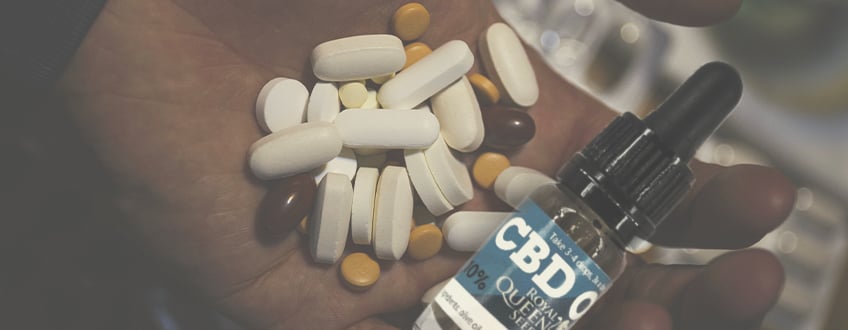
CAN YOU HAVE AN ALLERGIC REACTION TO CBD OIL?
An allergic reaction to CBD oil is incredibly uncommon. However, if you experience nausea or signs of an allergic reaction when taking CBD oil, it could be due to additional components other than CBD.
CBD oils autumn into three major categories:
- Full-spectrum
- Broad-spectrum
- CBD isolate
Each type of CBD oil features a different selection of cannabinoids and terpenes, and there is also the production process and quality control standards to consider. The best approach is to buy from CBD producers who offer independent analysis of their entire CBD oil range.
For a natural experience, you should focus on CBD oils that adhere to the following principles:
- Derived exclusively from natural sources
- Gluten-free and/or vegan-friendly
- No heavy metals, additives, or GMOs
- Tested by external labs/third parties
By understanding which compounds make up each type of CBD oil, you’ll be able to tailor the experience to your needs and identify any unsuitable ingredients.
WHICH CBD OIL IS BEST FOR YOU?
As you can see from the information above, the possible effects of CBD oil extend from head to toe and may impact dozens of conditions. However, the compound's greatest strength—its versatility—also presents a significant number of variables.
Several of the studies outlined above are preclinical, and conclusive results from human trials remain under investigation.
Whether or not CBD oil is suitable for you and your lifestyle will come down to several factors. Before taking CBD oil, you should understand what it is you want to achieve, and discuss this with your doctor.
Please note: RQS CBD oil is not intended as a replacement for any form of medicine.
- Endocannabinoids and immune regulation https://www.ncbi.nlm.nih.gov
- Frontiers | Cannabinoids and Pain: New Insights From Old Molecules | Pharmacology https://www.frontiersin.org
- Cannabidiol as a Potential Treatment for Anxiety Disorders | SpringerLink https://link.springer.com
- CDC - Data and Statistics - Sleep and Sleep Disorders https://www.cdc.gov
- Cannabidiol in Anxiety and Sleep: A Large Case Series https://www.ncbi.nlm.nih.gov
- Cannabinoids in dermatology: a scoping review https://www.evms.edu
- Interference with acute nausea and anticipatory nausea in rats by fatty acid amide hydrolase (FAAH) inhibition through a PPARα and CB 1 receptor mechanism, respectively: a double dissociation | SpringerLink https://link.springer.com
- A Personal Retrospective: Elevating Anandamide (AEA) by Targeting Fatty Acid Amide Hydrolase (FAAH) and the Fatty Acid Binding Proteins (FABPs) https://www.ncbi.nlm.nih.gov
- The Endocannabinoid System: An Ancient Signaling Involved in the Control of Male Fertility https://sites.oxy.edu
- Neuroprotective antioxidants from marijuana. - PubMed - NCBI https://www.ncbi.nlm.nih.gov
- JCI Insight - A single dose of cannabidiol reduces blood pressure in healthy volunteers in a randomized crossover study https://insight.jci.org
- Therapeutic Potential of Non-Psychotropic Cannabidiol in Ischemic Stroke https://www.ncbi.nlm.nih.gov
- FDA-approved drug Epidiolex placed in schedule V of Controlled Substance Act https://www.dea.gov
- Cannabinoids in the Treatment of Epilepsy: Hard Evidence at Last? https://www.ncbi.nlm.nih.gov
- Cannabidiol reduces cigarette consumption in tobacco smokers: preliminary findings. - PubMed - NCBI https://www.ncbi.nlm.nih.gov
- Transdermal delivery of cannabidiol attenuates binge alcohol-induced neurodegeneration in a rodent model of an alcohol use disorder - ScienceDirect https://www.sciencedirect.com
- Cannabidiol and Neuroprotection: Evidence from Preclinical Studies - ScienceDirect https://www.sciencedirect.com
- Agonistic Properties of Cannabidiol at 5-HT1a Receptors | SpringerLink https://link.springer.com
- Cannabidiol is a negative allosteric modulator of the cannabinoid CB1 receptor https://bpspubs.onlinelibrary.wiley.com
- CANNABIDIOL (CBD) Critical Review Report https://www.who.int
Categories
CBD Oil


























